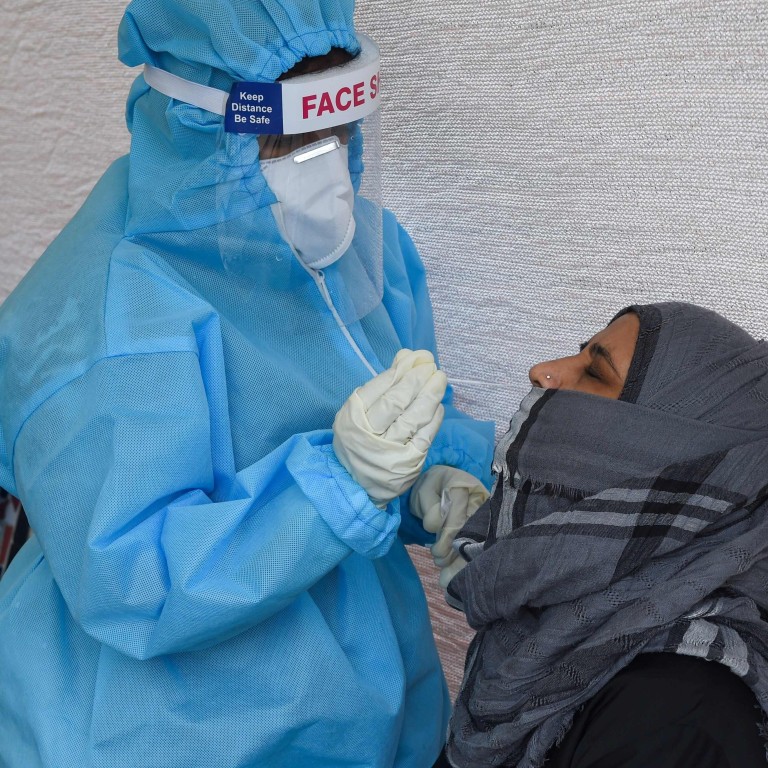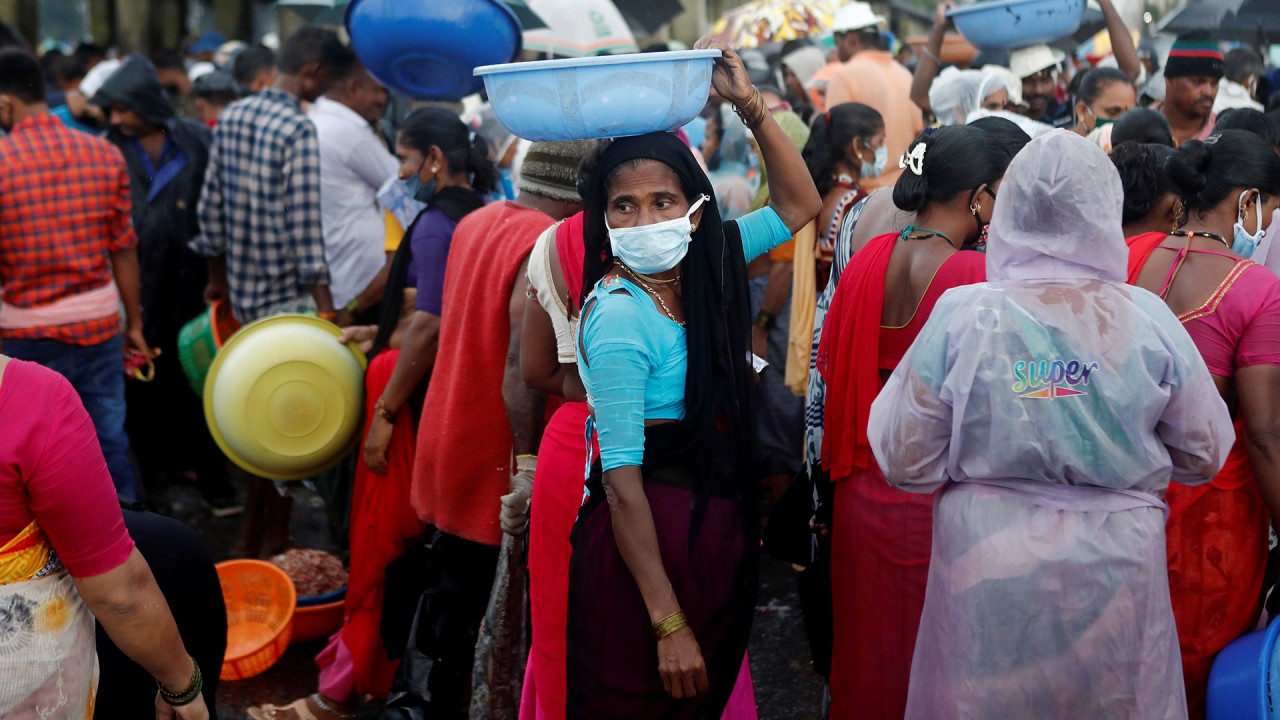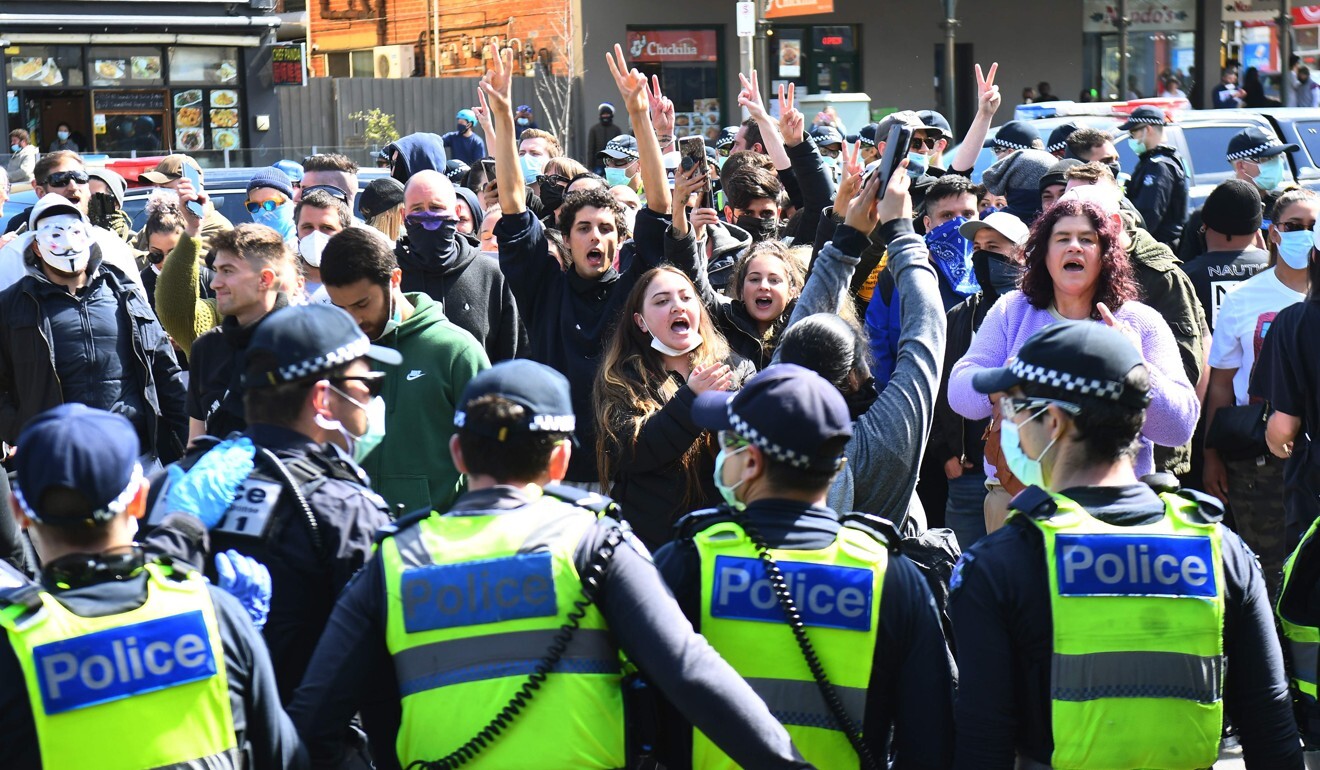
Coronavirus latest: India cases surpass 5 million; Malaysia in no rush to reopen borders
- With its latest 1 million infections recorded in just 11 days, a world record, India now has 5.02 million cases
- Malaysian PM says the pandemic is expected to continue for a long time, while a new study suggests 60,000 Australian cases went undetected
With its latest 1 million cases recorded in just 11 days, a world record, India now has 5.02 million infections. Only the US has more, with 6.59 million.
While India took 167 days to reach 1 million cases, the next million came in just 21 days, faster than the US and Brazil, according to The Times of India.
From Australia to India, are lockdowns working?
Just 29 days later, India became only the third country after the US and Brazil to post 4 million infections. India passed Brazil earlier this month.
Even so, and with India now testing around a million people daily, experts say that this is not enough and that the true number of infections may be far higher.
This has been borne out in several studies in recent weeks measuring antibodies against the virus among the cramped populations of megacities New Delhi and Mumbai.
The India Council for Medical Research, the country’s lead pandemic agency, said last week that its survey had suggested that already in May, 6.5 million people were infected.

03:05
India overtakes Brazil with second-highest number of Covid-19 cases, city of Pune national hotspot
The same goes for deaths – 82,066 as of Wednesday, less than half the US toll of 195,000 – with many deaths not properly recorded by authorities even in normal times.
India has one of the world’s most poorly funded health care systems and the nation of 1.3 billion people is home to some of the most densely populated cities and towns.
The lockdown saw complete travel bans, shutting down of businesses and factories, and the flight of millions of poor migrant workers from big cities to their villages that experts say caused the virus to spread from urban centres to small towns.
India’s GDP slumped nearly 24 per cent in the first quarter, one of the steepest drops among major economies.
The lockdown has been steadily eased even as infections soar, with schools set to open for some classes on Monday – along with tourist hotspot the Taj Mahal.
Malaysia in no rush to reopen borders
With Covid-19 cases on the rise globally, the government will not rush to reopen the country’s borders, Malaysian Prime Minister Muhyiddin Yassin said.
Based on the data available, he said the pandemic was expected to continue for a long time.
He noted countries around the world were struggling to contain the pandemic or prevent new waves from occurring.
“The same can happen here if we let our guard down and disregard the global situation,” he said in a special address of the current Covid-19 situation in the country on Tuesday night.
Although closing borders caused hardship to those who had interests outside the country, he said decisive action had to be taken to protect the people and the country.
“We must strike a fine balance between protecting lives and livelihoods of all Malaysians,” he said.
Muhyiddin also advised all Sabahans to take extra care during the ongoing state elections as there had been a rise in Covid-19 cases there.
Migrating Hongkongers lose an exit as Malaysia’s MM2H scheme put on ice
He expressed hope that election authorities would ensure campaigning followed standard operating procedures (SOP) as set by the Ministry of Health and the National Security Council (NSC).
“In normal circumstances, during the election season many people would gather and greet one another.
“I would like to advise everybody to avoid any gatherings at crowded places.
“Please avoid shaking hands with the voters. The most important thing is for us to protect one another from Covid-19. We look after each other,” he added.
The prime minister said that of late, the number of cases in the country had been on an uptrend, causing three districts to be categorised as red zones – namely Kotar Setar in Kedah, as well as Lahad Datu and Tawau in Sabah.
Muhyiddin said that if the number of cases spiked drastically, the government would have to reintroduce the movement control order (MCO) again.
As of Tuesday, a total of 9,969 positive cases of the disease have been detected, with 128 deaths. The country is now in the recovery MCO phase, until the end of the year.

60,000 Australian infections ‘went undetected’
Researchers at The Australian National University (ANU) developed a new “highly-sensitive” blood test that detects people’s previous exposure to the novel coronavirus.
“We screened 3,000 blood samples provided by healthy people around Australia for antibodies to the novel coronavirus SARS-CoV-2,” Associate Professor Ian Cockburn, who co-led the research with Professor Elizabeth Gardiner, said in a statement.
The tests were conducted between June 2 and July 17, ahead of Victoria’s major outbreak, and before testing had increased in response to the second wave.
“Our best estimate is that around 0.28 per cent of Australians – one in 350 – had been infected with SARS-CoV-2 by that time,” Cockburn said.
“This suggests that instead of 11,000 cases we know about from nasal swab testing, about 70,000 people had been exposed overall.”
From Japan to Australia, flu vaccine plans pushed to tackle virus threat
The researchers found that eight in 3,000 healthy people were likely to have been previously infected after accounting for false positives, which “translates to potentially around 30,000 people with the virus at that time.”
The study is yet to be peer reviewed, but if confirmed and published the test could help better understand the spread of the disease and determine if there is evidence of herd immunity.
Meanwhile, the state of Victoria on Wednesday said eight people died from Covid-19 in the last 24 hours and 42 new cases were confirmed.
With daily infections falling to double digits over the last several days from highs of 700 in early August, Victorian authorities have relaxed some lockdown restrictions put in place to contain the virus.
Construction sites, manufacturing plants, warehouses and childcare facilities can reopen, allowing more than 100,000 workers to return to their jobs, if the 14-day rolling average is under 50 cases as of September 28.
However, people will still be limited to moving around in a 5km (3.11 miles) radius around home and only allowed outside for two hours a day for exercise, with a curfew from 9pm to 5am.
Australia has reported over 26,700 coronavirus cases and 824 deaths, with Victoria accounting for the bulk of both.
Philippines to engage Western vaccine firms
“We are still continuously negotiating,” Health Undersecretary Maria Rosario Vergeire said. “No vaccine manufacturers have ‘formally’ asked for pre-payment, though there have been insinuations during the discussions.”
President Rodrigo Duterte on Monday lashed out at Western vaccine manufacturers for seeking advance payment or a reservation fee for vaccines that are still under clinical trials.
He pledged to prioritise Russia or China, countries that he frequently praises during his trademark verbal tirades at the West.
His government has talked to a number of potential vaccine suppliers, including those of Russia and China plus US drugmaker Pfizer and Moderna. It plans to meet Australian biotech giant CSL Ltd.
A Philippine procurement law forbids payment of goods well ahead of delivery and before a product’s specifications are finalised, putting the country at a disadvantage amid expected high global vaccine demand. The Philippines has recorded nearly 270,000 coronavirus infections and over 4,600 deaths.
Thailand welcomes tourists
The tourists will undergo a mandatory 14-day state quarantine on arrival at partner hotels or hospitals and follow health and safety regulations.
Additional reporting by The Star, Agence France-Presse, DPA and Reuters
